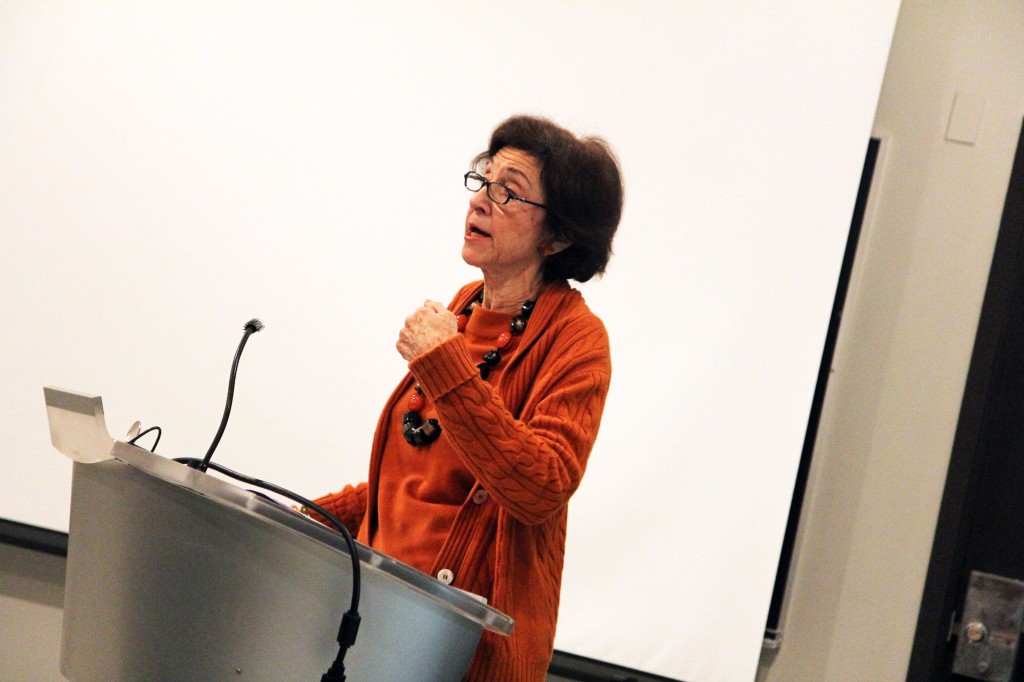
Perception could mean the difference between fact and fiction when it comes to modern history, according to one professor.
Carol Gluck, George Sansom professor of history at Columbia University, discussed at a talk Monday how different aspects of World War II have been forgotten or embellished over time.
According to Gluck, individual memories of historic events neglect the history, and more often than not, popular media eschew the facts.
“Let’s face it, most people’s knowledge of history is mostly from the media, which sometimes isn’t accurate,” Gluck said.
Gluck drew a distinction between memory and history, defining history as textbooks and work by historians while memory refers to all popular views about an event, irrespective of medium. According to Gluck, memories are propagated through official media such as government monuments and museums, but even more so through mass media like TV, movies and video games.
Gluck said that most memories fail to capture the moral ambiguity of historical events, simplifying the past into a binary of good and evil. She pointed to the popular image of the victimization of Japan by bad leaders, despite the overall strength of the Japanese empire, which stretched into Taiwan and Korea.
“These memories have a a long half-life, an astonishingly long half-life. I wanted to study what keeps them alive,” Gluck said.
The past, Gluck said, has been obstructed, resulting in generalizations about different nations and their people, silence about certain topics and hesitation about teachings of the past that go against the status quo. According to Gluck, it is difficult to undo the damage done by memory when it is presented as historical fact.
Gluck said World War II created a hierarchy of victims, with certain groups receiving more publicity related toward their hardships than others. Despite the European Jews being one of the most victimized groups in WWII, Gluck said that they were not given nearly enough attention in the decades following the Holocaust.
Gluck said she became interested in the distinction between history and memory after speaking at various events commemorating anniversaries related to WWII. She said she came face to face with all these memories that weren’t necessarily accurate and failed to capture the scope of the war.
“I want to keep the ’world’ in World War II,” Gluck said.
Gluck cited many examples of memories that challenged the facts of World War II, such as the Holocaust, which took decades to enter public memory, the Nanking Massacre, which is ignored in Japan despite the horrific treatment of the Chinese by Japanese troops, and the bombing of Hiroshima and Nagasaki, which is portrayed in a heroic light.
Gluck said that in order to learn from history, it is necessary to distinguish the facts from simple memories.
“As citizens of the world, which we all are, we should read more rather than listen to history,” Gluck said.


